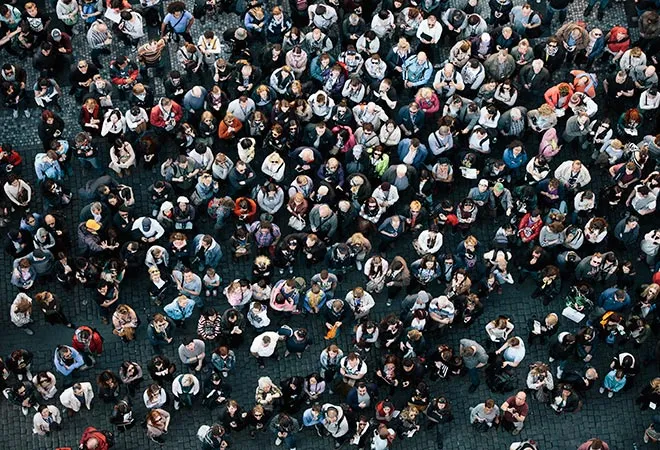
COVID-19 – the inception of which can be traced back to the end of 2019, turned into its most active phase from March-May 2020. Since then, the pandemic has become a real test for all countries of the world without any exceptions, including international institutions and authorities, some of which received a huge amount of criticism for the lack of ability to address the threat. COVID-19 tested not only the readiness of the humanity on a global scale to cooperate, share responsibility for issues and failures relating to quick proliferation of the disease, but also the hardest moment to prove our perseverance and mettle. The underlying problem of pandemic the existing issues, that have vividly prevailed even before the crisis appeared, and also brought forth new ones, underlining the globalism and, at the same time, fragility and volatility of our world and the current system of international relations.
As known to civilisation, COVID-19 had several phases of recognition. First, it was almost neglected by many countries, which did not deem to respond promptly to the warnings of the World Health Organisation (WHO). Thereafter, some of the countries geographically close to the main area of proliferation of the infection decided to introduce preventive measures, while others still chose to ignore the warnings. Despite the widespread transmission of the virus in some countries, many other countries were still reluctant to accept that it could also touch their territories and populations. Partial recognition changed into mobilisation when the mortality rates started to grow. At that moment, there was no single verified approach to execute: countries were different not only in objective terms of the sources allocated to respond to the pandemic, but also in terms of the general methodology. As the initial epicentre of COVID, China took harsh measures to prevent further proliferation of the latter, which to a certain extent and under the regional conditions and specifics seemed to be an effective decision. Strict measures, unprecedented for the European democracies, were initiated in the Western hemisphere as well, but only after semi-measures and soft urge of national governments to their populations did not produce much expected outcome. Italy, as one of the first European countries to experience the widespread transmission of COVID-19, suffered significantly from it. Italy set an example for the most of EU member-states to take immediate measures at the cost of severe limitations. As several reports suggested, COVID-19 was a highly negative phenomenon also in a sense of its impact on human rights, including traditional European democracies. Nonetheless, larger EU-states were quick enough to coordinate financial and human rights measures to combat the issue. Although, as it has been mentioned, there was no one size fits all approach, European Union agreed to dedicate more than trillion euros towards COVID recovery. At the same time, the Council of Europe released a practical toolkit for national governments on how to protect human rights, democracy and the rule of law while fighting coronavirus.
Recognition and combat were followed by active investigations of potential treatment and acceptance of the totality of the virus. Even today, there is no proven cure or prevention against the virus, however, some countries announced their substantial progress in developing a cure. To this end, Russia became the first country to approve a vaccine. Yet, some of the countries were reluctant to accept the results, which was viewed in Russia as a politically predetermined decision. Referring to the latter, it is important to state that the political component was at the table during the duration of its fight against COVID. It was Iran that suffered dramatically from the infection and sent corresponding signals to international community, asking for help. Nonetheless, even the pandemic was not viewed by countries like the United States as an impetus to ease the burden of sanctions. In this sense, some experts argued that COVID, contrary to initial expectations, additionally fuelled a highly stressful and intense international environment. Among other issues unveiled, it is due to the pandemic, that the vulnerability of conflict-affected populations, damage to the authority of international institutions, and damage to social order that became obvious aftermath of the crisis. For instance, organisations like WHO received a huge amount of scepticism from the United States, which froze its participation and then withdrew from it, for failing “to make the requested and greatly needed reforms”, while old conflicts were unfrozen in some of the war-thorn zones. Awakening and escalation of the Armenian-Azerbaijani crisis made Armenia defend not only against COVID-19, but also aggression on its borders. The South Caucasian state, landlocked from Turkey and Azerbaijan, had a very difficult path to cover. For the entire period of pandemic, Armenian national government was under a constant criticism for the lack of ability to prevent dynamic increase of confirmed daily cases of infected people, as well as utilising the situation in favor of its doubtful domestic political decisions. Neighbouring Azerbaijan, while also struggling against COVID, felt drastic economic shocks caused by the pandemic. This made some experts assert that the attention of Azerbaijani population had to be shifted from domestic problems to the usual and widely accepted open confrontation with Armenia, which was extrapolated onto the territories of third states, where Armenian and Azerbaijani diasporas engaged in some sort of explicit skirmishes. If the reaction of international community underpinned the necessity to immediate de-escalation, especially in light of the statement of the UN Chief to global ceasefire, some countries like Turkey made unambiguous attempts to directly intervene into the evoked Armenian-Azerbaijani conflict. In this sense, COVID-19 only contradicted the efforts of the peacemakers by broadening their agenda with intensified misunderstandings between Armenia and Azerbaijan, Turkey and Armenia, Turkey and Greece, domestic clashes in Belarus, Iran and the United States, and many other instances in Africa, Middle East and Asia.
Overall, it is important to not only mitigate the fueled conflicts but also overcome the crisis stronger. The pandemic has brought the world to the crossroads: it will either become more divided, having the former hot spots, squabbles and issues intensified, or more united, integrated and global, making the world powers put aside their political tensions, at least temporarily, for the sake of new economic opportunities and inclusive growth. There is not much room for optimism right now; however, as history evidenced humanity could overcome threats when the detrimental impact on the global economy, which is certainly the case with COVID-19.
The views expressed above belong to the author(s). ORF research and analyses now available on Telegram! Click here to access our curated content — blogs, longforms and interviews.




 PREV
PREV


